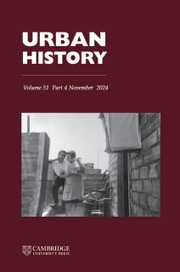No CrossRef data available.
Article contents
Circular and cumulative: race, sex, religion and class in urban America
Published online by Cambridge University Press: 01 August 2000
Abstract
It seems bizarre and inappropriate that so many books dealing with African-American lives in both Southern and Northern cities pay scant attention to the music that provided their only clear political as well as cultural voice. This seems even more anomalous now that historians of slavery appreciate that the music is a vital conduit for black responses to oppression and discrimination. In the five books under review, cultural consciousness is frequently relegated to a marginal position in the attempt to define the parameters of racism in cities as diverse as Philadelphia, New York, Chicago, Detroit and Charlotte.
- Type
- Review Article
- Information
- Copyright
- © 2000 Cambridge University Press


